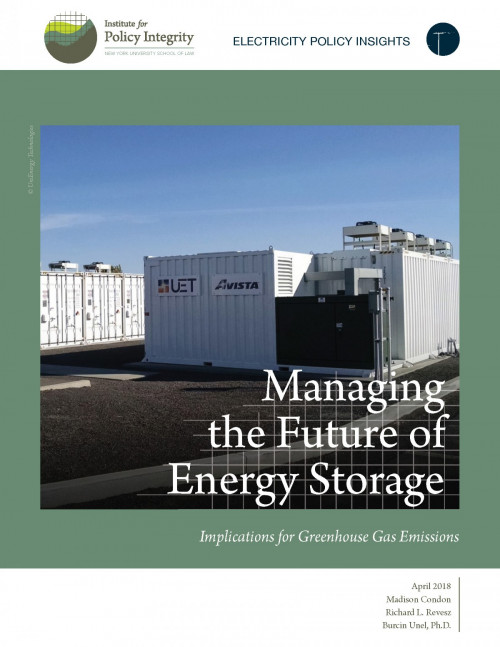Many policymakers assume that increasing deployment of energy storage will automatically reduce greenhouse gas emissions, in part by helping to integrate renewable energy resources with intermittent and variable generation. This report, published in the Harvard Environmental Law Review, explores situations in which energy storage systems can in fact lead to increased emissions, and offers reforms to correct for poor incentives while ensuring that energy storage can provide the maximum benefit possible to the grid.
Policy reforms that account for the range of benefits provided by storage, including reduced air pollution, are required at both state and federal levels. This report recommends that policymakers (1) focus on accurately pricing externalities caused by greenhouse gases; (2) eliminate entry barriers for energy storage systems; (3) and eliminate barriers that energy storage systems face to receiving multiple value streams for the various services they provide. The report outlines steps to realize each of these three goals and provides an overview of state and federal actions currently under way.

